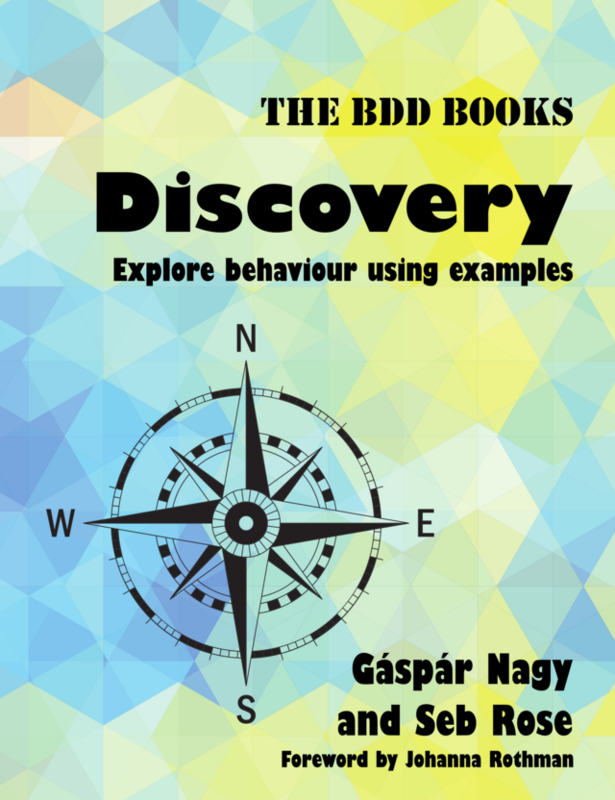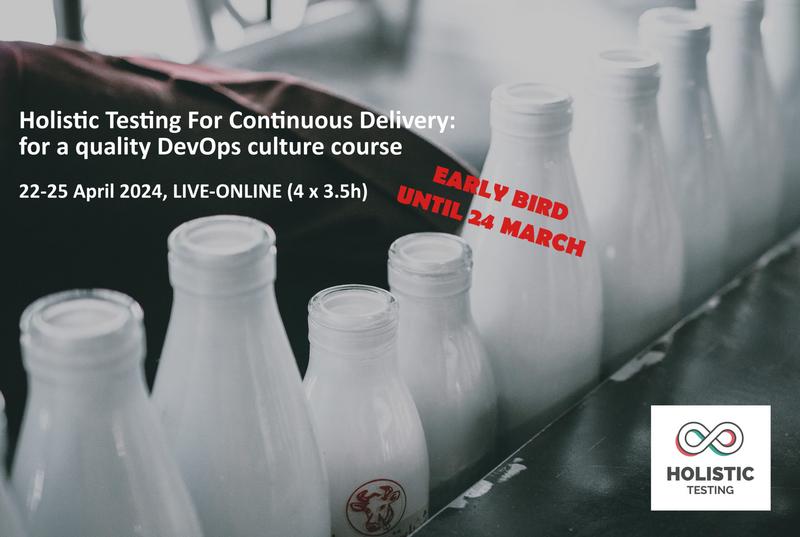This is the second in our series introducing some of the highly experienced practitioners who teach our Holistic Testing  courses. Some of you are already familiar with Gáspár Nagy. Janet and Lisa had the good fortune to meet Gáspár at testing conferences many years ago. He’s been in the software development business for more than 20 years as an architect and agile developer coach. He’s an author, test tool developer, and a leader in the open-source community. We’re honored to have him on board as an ATF training provider and instructor since 2018.
courses. Some of you are already familiar with Gáspár Nagy. Janet and Lisa had the good fortune to meet Gáspár at testing conferences many years ago. He’s been in the software development business for more than 20 years as an architect and agile developer coach. He’s an author, test tool developer, and a leader in the open-source community. We’re honored to have him on board as an ATF training provider and instructor since 2018.
Q: Gáspár, please tell us your "origin story", how did you get into the software profession?
Like many things, it started with a coincidence. I had to do home schooling when I was 14 because of surgery. Without even knowing me, my teacher of informatics thought that it must be very boring at home and lent me one of the school computers. This was a big thing in Hungary in 1992. There were no games on the computer (and no internet at that time), so I started coding and have never stopped since then. Sometimes even a small help can cause fundamental changes and I'm very grateful to my teacher for what she did. Now it's my turn and my responsibility to give it forward.
Q: You're a leader for behavior-driven development (BDD), including being the lead developer for SpecFlow, the SpecSync synchronization tool, and writing the BDD book series with Seb Rose. When did you first try BDD? What made you want to try it? Did you have good results right away?
you want to try it? Did you have good results right away?
In 2009 we had projects with massive integration-level test automation. We were stunned by the real actual costs of creating and maintaining those tests, so we were seeking ways to increase the value provided by the tests and reducing the maintenance costs. (Sounds familiar?) Somehow our idea was that a better separating of the intent of the tests or the actions performed by the tests from the technical solution would be beneficial. We had tried different approaches already when we found Cucumber that seemed to do exactly what we wanted. The concept of BDD worked for us right from the beginning, or at least we always saw the light at the end of the tunnel, but the new concept introduced or brought other challenges. In the end it took us some time until we could say that we had a working model.
Q: What motivated you to help teams learn about BDD, SpecFlow, test-driven development (TDD), and Extreme Programming (XP) by providing your own range of training courses?
I like to do training. The feeling when you find the right example that illustrates a concept and can explain it in a way that the other person understands it, compares to nothing else. It complements the engineering work I would otherwise do. Through the courses I can connect with many people, learning about their perspectives and challenges. It is also useful to validate my own thoughts. It is very exhaustive, but it is worth.
Q: What made you decide to add our holistic testing courses to your training offerings?
My journey to agile software development started with project management (Scrum), agile engineering techniques and agile requirement management. But I felt that something was missing. When I read the Agile Testing book, I realized that this is the missing link. So basically, your book filled up a white spot on my map. For me, the holistic testing courses are a good way to pass on this "yay, I've found it" feeling. And I feel honored to work with you on this.
Q: We’re so glad you found our book and our courses valuable! You helped us refine and improve the new course, "Holistic Testing for Continuous Delivery". Who do you think can benefit most from it?
Continuous Delivery (CD) is a good starting point. The goals of CD are easy to understand and the CD pipeline is a concrete asset that makes the concept visible for everyone. But to be able to build up a working CD process, you really need everyone to collaborate and at the end you will learn all important concepts of the thing that we call holistic testing. So, I think this is beneficial for everyone who are on this journey, regardless of whether you will ever configure a pipeline yourself. Continuous Delivery (just like holistic testing) is not only for the big online companies. The concept works for projects in all sizes and nature.
Q: When you build code yourself, such as custom extensions for clients using SpecFlow, do you use a holistic approach? Do you learn things from your own development work that you share in the classes you teach?
I think the short answer would be - yes. But this is a journey and a continuous responsibility. Like many others, I tend to over trust myself and sometimes I feel that "I'm good enough already, I might not need this or that." You can call this laziness or even a risk-based approach, but at the end it is always the same: It works indeed… mostly. However, there may be a circumstance and then a problem is caused that could have been avoided by doing the things "right". "Mostly" is not a good quality measure. But I learn from these incidents and they make the best stories that I can share with my course attendees.
Q: Is there anything else you'd like to share about yourself and your interests?
I got into testing from software development, so I am generally interested in how devs and testers can better collaborate with each other. This is not easy though. Just putting devs and testers into the same team is not enough. We need to keep seeking opportunities and concepts that enable collaboration, so we can really see quality in a holistic way.
Q: Please share any upcoming events and classes you have planned. Also please share links to your website, any writing or videos you have available so people can learn more about your work.
I have some upcoming courses in the first quarter of 2024. In the "BDD Vitals" course you gain essential knowledge and skills for writing better BDD scenarios, which enable you to become a strong member of a BDD team (https://www.specsolutions.eu/events/courses/202403bddvitalsonline/). If you have interest in using SpecFlow and test automation as well, I strongly recommend my "BDD with SpecFlow" course (https://www.specsolutions.eu/events/courses/202403specflowonline/). In both courses the attendees can rely on a lot of exercises and discussions.
 And last but not least, in April I am awaiting attendees for the “Holistic Testing For Continuous Delivery for a quality DevOps culture” course, where you can learn ways to apply the infinite loop Holistic Testing model to testing activities that help your team succeed with continuous delivery (https://www.specsolutions.eu/events/courses/202404holistictesting-cd/).
And last but not least, in April I am awaiting attendees for the “Holistic Testing For Continuous Delivery for a quality DevOps culture” course, where you can learn ways to apply the infinite loop Holistic Testing model to testing activities that help your team succeed with continuous delivery (https://www.specsolutions.eu/events/courses/202404holistictesting-cd/).
All these courses are offered in remote form. Further information is available at our company website (www.specsolutions.eu).